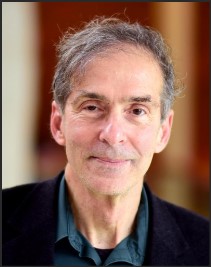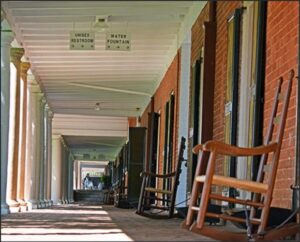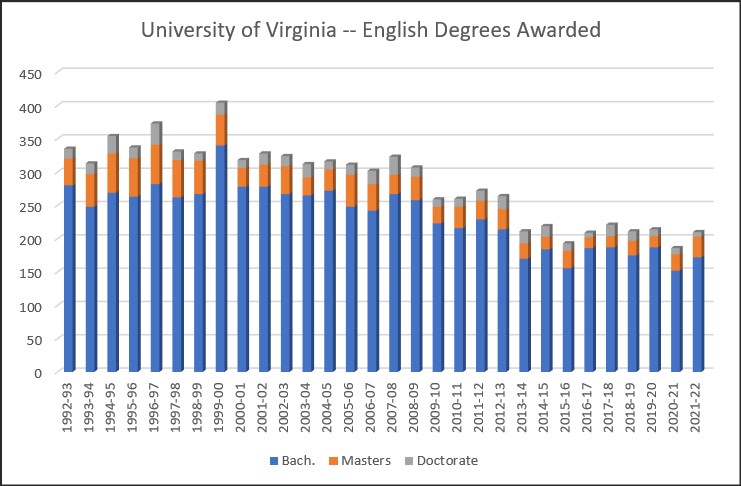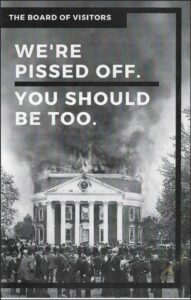 by James A. Bacon
by James A. Bacon
Earlier this month, an anonymous group distributed a pamphlet, “We’re Pissed Off: You Should Be, too,” on the University of Virginia grounds that issued a broadside against the university’s governance structure. Although Board of Visitors member Bert Ellis was the primary object of their ire, the authors criticized the Board generally as “an undemocratic institution.”
“Seventeen people who are appointed by the State, which only provides 11% of UVA’s academic division’s funds, are deciding where 100% of it goes as the BOV gets the final say over approval of the annual budget,” states the pamphlet. “The Board of Visitors (BOV) as an institution is inherently undemocratic. It does not have enough checks and balances put into place to protect students, as well as faculty, staff, and UVA’s administration.”
This is a useful conversation to have. From the student’s or graduate student’s perspective, I suppose, the Board does seem undemocratic. Board members are appointed by Virginia’s governor. Neither students nor faculty get to vote on who serves on the board. But, then, the taxpayers of Virginia don’t get a direct vote either. Neither do parents paying tuition. Neither do alumni who collectively contribute as much to UVa’s funding as the Commonwealth of Virginia does. (Philanthropy and endowment income have surpassed state contributions as a revenue source.)
UVa, like other higher-ed institutions, is a strange beast. Its rules of governance are unlike those of government, or corporations, or charitable organizations. UVa is more like a feudal institution. It has an academic division and a healthcare division. The academic division has 13 colleges and schools, each with its own dean and varying degrees of autonomy and philanthropic funding. Students have a significant role in self governance. So do faculty. Affiliated with the university is a bewildering assemblage of autonomous groups that carry out important functions, each with their own boards.
Nominally, the Board of Visitors governs this feudal kingdom. But in reality it does not exercise much power. It is easily manipulated by the administration. This is not unique to UVa or a rap on President Jim Ryan. It’s the way almost all universities work. Continue reading

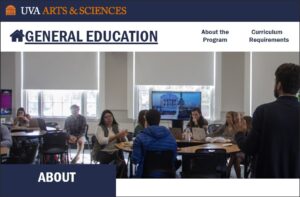 by James A. Bacon
by James A. Bacon by James A. Bacon
by James A. Bacon by James A. Bacon
by James A. Bacon